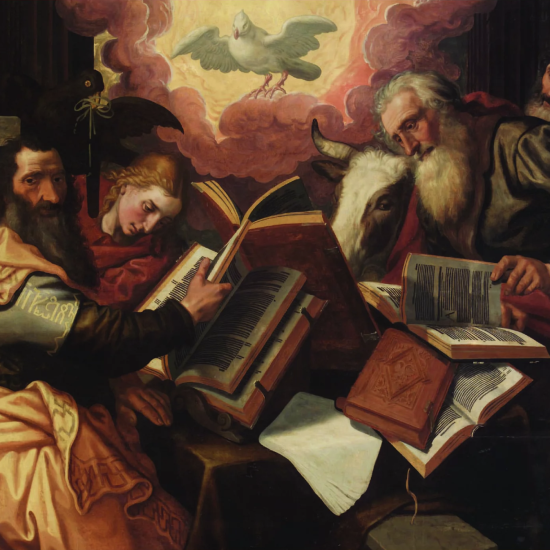Status in society can influence how people read and interpret the Bible—and often how they will act on it, according to some Christian leaders.
Miguel de la Torre, associate professor of social ethics at the Iliff School of Theology in Denver, Colo., said too many American Christians read the Bible through the eyes of a middle-class Caucasian United States citizen.
Speaking at a recent Texas Baptist Christian Life Commission Conference, De la Torre noted the original audiences of Jesus and his disciples were quite different, primarily consisting of poor people living more than 2,000 years ago. They lived drastically different lives than contemporary American Christians and viewed Christ’s teachings differently.
“My fear is when we write that kind of sermon, we are being influenced by how we’ve been taught to read the Bible,” De la Torre said, specifically speaking of sermons on the Sabbath. “That is, we read the Bible through the eyes of middle- and upper-class privilege.”
Caleb Oladipo, the Duke K. McCall professor of Christian mission and world Christianity at the Baptist Theological Seminary at Richmond, agrees the West has lost the original intent of Christ’s message. Western biblical view is shaped more by logic than understanding.
The habit of reading the Bible empirically “doesn’t mean it doesn’t get us closer to God. The more we realize what it means, the closer we can get to God. But the power of Scripture is sometimes lost,” said Oladipo, who is originally from Nigeria and taught previously at Baylor University.
De la Torre pointed to the Bible’s teaching about the Sabbath as an example of how people of different socioeconomic levels interpret Scripture differently. For people with some level of financial security, the focus is on the need to take time away from work to focus on God and family. De la Torre recently met a pastor of a church of migrant workers who saw the Bible’s teaching on the Sabbath as a command for people to work six days a week.
“The emphasis that those of us with economic privilege, the emphasis is on taking the day off,” he said. “The emphasis for those who do not have jobs is somewhere else.”
Chuck Arney, pastor of Cornerstone Baptist Church in Lee’s Summit, Mo., agrees economic status colors an individual’s view of Scripture—both for the poor and for middle- and upper-class Christians.
Arney, president of Coldwater, a not-for-profit ministry to the suburban poor in Lee’s Summit, points to the Lord’s Prayer request for “daily bread” as an example. “We (with economic stability) tend to spiritualize it,” Arney said. “Food is viewed differently. Ours is that food tastes good. Theirs is: ‘How can I feed my children tomorrow?’”
Christians with a middle-class context tend to view giving time or money as their only responsibility, Arney said.
“We are cultured in capitalism. We have received heavy doses of the concept of ‘this is mine,’ and we act with the view of ‘what I’ve earned,’” he said. “We may say, ‘The earth is the Lord’s,’ but we live by ‘I’ve got to pick myself up by my bootstraps.’”
If Christians understand contemporary impoverished people view the Bible similarly as Jesus’ original audience, De la Torre believes the scriptural command to serve the poor also becomes an important opportunity to learn about Scripture. Coming to see their vantage point enhances an individual’s understanding of the Bible’s teachings.
Milton Horne, executive director of the Center for Justice & Sustainability at William Jewell College in Liberty, Mo., sees education as a key to assist individuals out of poverty and to be a catalyst for getting more Christians involved in social justice issues, including economic injustice.
“Economic justice is a problem. People with capital continue to prosper. Those without cannot,” he said.
“Economics is a real factor in justice. The simple truth is poverty has played a role in how some people understand the Bible, but ultimately education determines how people interpret the Bible.”
Launched in 2009, the center hosted its first summit on sustainability issues this spring. The center also provides education and hands-on opportunities, including internships, for Jewell students. Through the center, the college partners with area organizations to meet community needs.
The center broke ground for a common garden at the end of February in a partnership with Second Baptist Church in Liberty.
John Bennett, board chair of Missouri IMPACT, an ecumenical and interfaith legislative social justice advocacy nonprofit in Jefferson City, Mo., believes the economically disadvantaged “tend to find comfort and challenge from the prophetic literature and from the liberating message of Jesus.”
Connecting with the impoverished broadens the thinking of many Christians who are economically more secure, De la Torre said. They begin to see the need to help people in need, no matter how dire the situation may be.
“I don’t do justice because I’m going to succeed,” he said. “I do justice because that’s what I’m called to do.”
Connecting is the most important aspect of justice, Arney believes. “What we (Coldwater ministry participants) tend to concentrate on around people struggling is that there’s hope—that ultimately God provides hope in Christ. If the world’s not fair, there’s still hope,” he said.
Oladipo believes hope is what draws the poor to God. “To the poor, the Bible becomes their ally. … The way they see themselves and the way they see each other is more from the point of view of hope. The Bible give them hope,” he said.
“In the affluent world, if you need a Coke, you go to the machine and pull one out. If you need to go from Richmond to California, you can get there by flying. But in situations of poverty, none of these things can happen. They know these are not available to them. That causes them to rely more on God.”
Arney also believes when Christians grasp their own indebtedness to the poor, they will recognize their calling to minister and will be more willing to do so.
In his ministry to the Gentiles recorded in Romans, the Apostle Paul “levels the spiritual playing field” by pointing out that all have sinned, Arney said.
Paul’s work also leveled the economic playing field, Arney argued, because Paul collected funds for the poor on his missionary journeys.
“In the Romans context, the poor were the Jerusalem Christians experiencing famine. Paul shows … (Gentiles) that they must give to the poor because the poor have given you the gospel. That principle ties over to today,” Arney said.
“The economically poor in a suburban context … are hungry for spirituality,” he added. “But what they’re looking for is not so much biblical truth, but finding friendship, connection and hope.”
–With additional reporting by John Hall and Robert Dilday.






